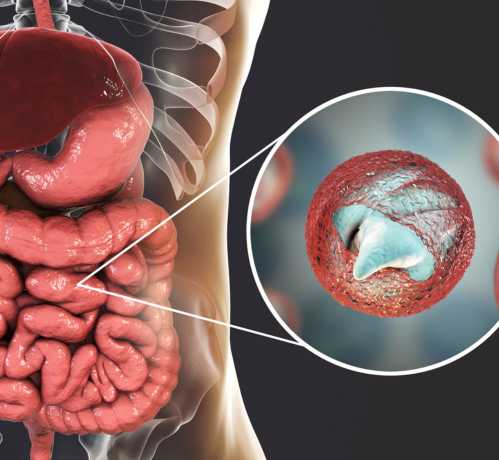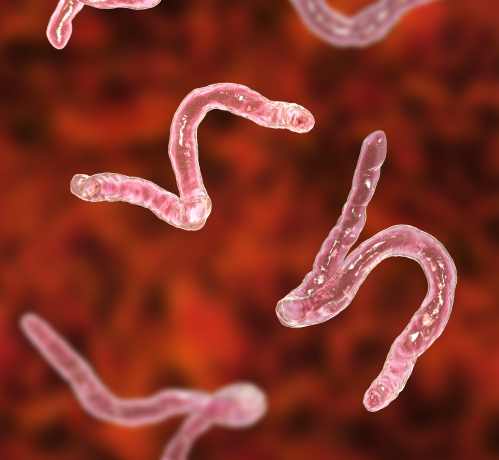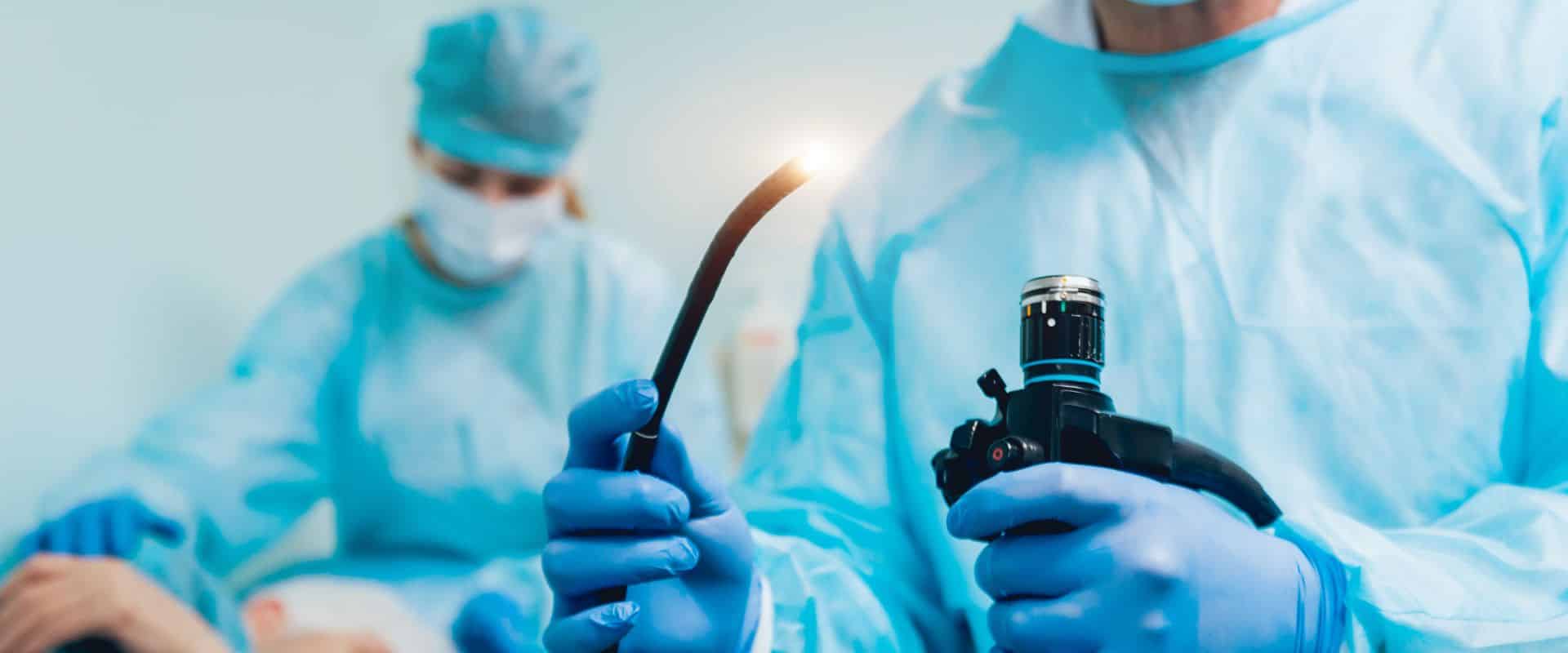What are parasites?
Parasites are organisms that live in or on another organism and derive nutrients and resources from the host, often causing harm to the host in the process. These organisms tend to live off of various strategies to exploit their hosts for survival and reproduction. Parasites can be found in a wide range of environments, including animals, plants, and even microorganisms.
24% or 1.5 billion of the world’s population may have parasites living in their intestines. There are four different types of parasites, classified based on their relationship with the host:
Endoparasites: These parasites live inside the host’s body, such as worms and protozoa that infect the gastrointestinal tract, blood, or other tissues.
Ectoparasites: Parasites that live on the external surface of the host, such as ticks, lice, fleas, and mites that infest the skin, fur, or feathers of animals.
Microparasites: Parasites such as bacteria, viruses, and protozoa, reproduce within the host’s cells and cause malaria, influenza, or bacterial infections.
Macroparasites: These are larger parasites that include worms and arthropods, which are visible to the naked eye and include tapeworms and roundworms.
Parasites have complex life cycles that may involve multiple hosts or stages of development. The relationship between a parasite and its host can vary, ranging from mutualistic (benefiting both parties) to parasitic (harming the host).
Control and prevention of parasitic infections are essential in various fields, including veterinary medicine, agriculture, and human health, as parasites can cause diseases and economic losses.
What are the causes of parasite infections?
Parasitic infections are caused by the introduction and establishment of parasites in a host organism. The specific causes of parasitic infections can vary depending on the type of parasite involved, but generally, they result from interactions between the host, the parasite, and the environment.
Common causes of parasitic infections include:
Contaminated food and water
Ingesting food or water contaminated with parasites or their eggs is the most common way to acquire parasitic infections. Poor hygiene, inadequate sanitation, and unsafe food handling practices can contribute to the transmission of parasites.
Insect vectors
Parasites, particularly protozoa and helminths, are transmitted to humans and animals through insect vectors. These insect vectors include mosquitoes, ticks, fleas, and flies. These vectors may carry the infectious stage of the parasite from one host to another.
Direct contact
Contact with contaminated surfaces or infected individuals can transmit some parasites. Zoonotic parasites can be transmitted from animals to humans via close contact with infected animals or faeces or the consumption of undercooked or raw animal products.
Environmental factors
Environmental conditions, such as temperature and humidity, can heavily influence the survival and transmission of parasitic organisms. Parasites tend to thrive in specific environmental conditions and may be more prevalent in certain geographical areas.
Poor hygiene and sanitation
The lack of proper hygiene practices, such as inadequate handwashing, improper disposal of human waste, lack of access to clean water, and proper sanitation, can contribute to the transmission of waterborne infections and the spread of parasites.
Travel to endemic areas
Travelling to regions where certain parasites are endemic increases the risk of parasitic exposure. Individuals may come into contact with contaminated food or unpurified water from lakes, streams, or unknown water sources, which can transmit parasites.
Preventing parasitic infections often involves practising good hygiene, maintaining clean water and sanitation facilities, avoiding contact with infected individuals or animals, and taking precautions when travelling to endemic regions. Additionally, proper cooking of food, thorough washing of fruits and vegetables, and using insect repellents can help reduce the risk of parasitic infections.
What are the most common symptoms of parasitic infections?
Symptoms of a parasitic infection in humans can vary depending on the type of parasite and the affected area of the body.
Common signs and symptoms include:
Lack of energy
Low motivation
Lack of energy
Bloating or gas
Having dry skin
Difficulty sleeping
Lesions or ulcers
Feeling weakness
Nausea and vomiting
Breaking out of the skin
Constantly feeling tired
Unexplained weight loss
Rashes, itching, or sores
Skin irritation or redness
Difficulties in waking up
Disturbed sleep patterns
Abdominal pain or discomfort
Constant mood swings
Symptoms of parasitic infections can sometimes be vague or mimic other health issues, which is why it’s important to consult a healthcare professional if you suspect a parasitic infection.
However, not everyone with a parasitic infection will experience symptoms, especially in the case of mild infections or individuals with a strong immune system.

How to get a diagnosis of a parasitic worm infection

If your symptoms are worsening and becoming more present and recurrent, it would be best to consult your gastrointestinal specialist.
Diagnostic tests will be necessary to identify and conclude your treatment. Your gastro-specialist is likely to do the following diagnostic tests:
Faecal test: A stool sample checked for parasites, larvae, or eggs, can detect the presence of parasites in your system.
Blood test: A blood test can be used to detect different types of parasites present in your bloodstream.
Imaging tests: Imaging tests such as CT scans, MRIs, or X-rays can be used to detect organ injuries caused by parasites.
Tape test: A tape test involves placing clear tape around the anus or rear end. The tape can be examined and evaluated under a microscope for the presence of parasites.
What is a stomach parasite cleanse?
Parasite cleansing is a natural method aimed at eliminating parasites from the digestive system. To diagnose parasitic infections, medical professionals may employ various tests such as blood tests, faecal exams, endoscopy, X-rays, MRI, or CAT scans.
During a parasite cleanse, maintaining a well-balanced diet is crucial, emphasising nutrient-rich foods while limiting sugars and processed foods. A high-fibre diet is recommended to support regular bowel movements during the cleansing process.
A stomach parasite cleanse is often associated with alternative health practices and products that claim to eliminate parasites from the digestive system. The evidence in relation to stomach parasite cleansing lacks scientific evidence, and the efficacy and safety of such cleanses are often questionable.
The parasite cleanse involves incorporating herbal supplements into the diet, including grape seed extract, clove oil, wormwood, anise, and goldenseal. However, caution is advised as some supplements may be intense, necessitating consultation with a healthcare professional.
The specific methods used in parasite cleanses can vary but generally involve dietary changes, herbal supplements, or other substances that are believed to help eliminate parasites.
Here are some common components and practices associated with stomach parasite cleanses:
Herbal supplements
Parasite cleanses include a combination of herbs believed to have anti-parasitic properties such as black walnut hulls, wormwood, clove, garlic, and other herbs. These substances are often claimed to have anti-parasitic properties, although scientific evidence supporting their effectiveness is often not made solid.
Dietary changes
Parasite cleanses involve dietary changes, such as avoiding certain foods or adopting a restrictive diet, to create an environment that is inhospitable for parasites while supporting the body’s detoxification processes. Cook food to its recommended internal temperature and drink clean water with purification seals.
Colon cleanses
Colon cleansing procedures, such as enemas or colon irrigation, come with the belief that they will help flush out parasites from the digestive system. Colon cleansing, also known as colon hydrotherapy or colonic irrigation, is a procedure that involves flushing the colon with fluids to remove waste and internal toxins.
Probiotics
Parasite cleanses advocate the use of probiotics to promote a healthy balance of gut bacteria. Probiotics are beneficial bacteria that are thought to contribute to digestive health. While probiotics can be beneficial for certain aspects of gut health, their role in eliminating parasites is not well-researched or backed by data.
FAQs

A well-balanced diet, rich in nutrients and fibre, supports the body during a cleanse by promoting and stimulating regular bowel movements.
Scientific research suggests that a diet rich in vitamin A, selenium minerals, and zinc may enhance the body’s natural defence against parasitic infections.
Some herbal supplements used in the parasite cleanse may have intense effects and consulting with a healthcare professional ensures a safe and personalised approach to the mitigation of parasitic infections.
See a gastrointestinal specialist today
The Sydney Gut Clinic has a team of dedicated and exceptionally skilled gastrointestinal specialists equipped to offer comprehensive support and intestinal parasite treatment for a spectrum of gastrointestinal conditions.
Schedule an appointment with a gastrointestinal specialist promptly to receive early treatment and mitigate the risk of infection spreading to others. If you suspect a parasitic infection, seek medical attention by contacting your doctor or a specialised healthcare professional.
For individuals exhibiting symptoms of a parasitic infection, consider visiting our clinic for a consultation regarding a parasite cleanse.
